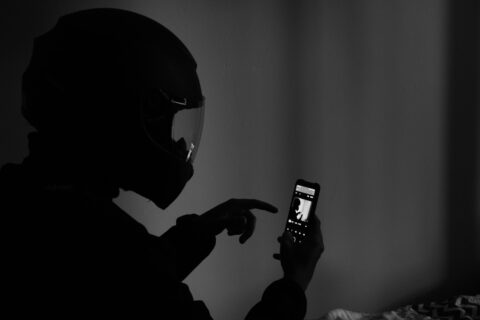Cabinet nod to Negotiable Instrument (Amendment) Bill, 2015 : Step towards clearing confusion of jurisdiction in cheque bounce case ?
By Shuchi Mehta
Most debated issue of jurisdiction in cheque dishonor cases is again in news as the Union Cabinet chaired by Prime Minsiter Shri Narendra Modi has approved the proposal to introduce the Negotiable Instrument (Amendment) Bill, 2015(“Bill”) in parliament.The government is likely to table it in the second phase of the current Session of Parliament. This Bill would give a huge relief to various financial institution and litigant as jurisdictional issue in filing the case under Section 138 of the Negotiable Instrument Act, 1881 (“NI Act”) is very ambiguous at present.
The move is aimed at fast tracking of resolution of cheque bounce cases while removing the ambiguities on jurisdictional issues arising out of the recent legal interpretation of the place of jurisdiction for filing cases under Section 138 of the NI Act to be the place of drawers’ bank by the Supreme Court. The proposed amendment mainly says that the offence of rejection of the cheque under Section 138 of the NI Act will be enquired into and tried only by the Court within whose local jurisdiction the bank branch of the payee, where the payee presents the cheque for payment is situated.
Background which paved the way for Introducing the Bill
The verdict of the Apex Court in Dashrath Rup Singh Rathod vs. Bank of Maharashtra & Anr.[1] and the decision passed by Justice M. L. Tahalyani, High Court of Judicature at Bombay in Ramanbhai Mathurbhai Patel V State of Maharashtra & Anr.[2] paved the way for bringing the amendments and introducing the proposed Bill.
September 29, 1999: The two-judge bench of the Apex Court in the case of K. Bhaskaran v. Sankaran Vaidhyan Balan[3] held that the complaint under Section 138 of the NI Act can be filed at any of the four places, namely (1) Where cheque is drawn; (2) where it is presented; (3) where the cheque is dishonored or (4) where the notice is sent to the drawer to pay the amount within 15 days.
August 1, 2014: In Dasrath Rupsingh case[4] the Supreme Court overruled its earlier judgment and has given the decision on eight appeals arising out of Special Leave Petitions and adopted the same view in all of them. To talk about one of them, the cheque was drawn on the UCO Bank, Tangi, Orissa but it was presented by the Complainant at State Bank of India, Ahmednagar Branch at Ahmednagar, Maharashtra. The complaint was filed in Ahmednagar. The Supreme Court, upholding the view taken by the High Court, held that the court at Tangi,the bank that has dishonored the cheque, will have the jurisdiction. Pursuant to this judgment number of pending cases has been returned to the court in whose jurisdiction the bank that dishonored is situated for filing a fresh complaint.
August 25, 2014:The Bombay High Court in the case of Ramanbhai [5] held that dishonor of cheque cases can be filed in the Court within whose local jurisdiction the nearest available branch of bank of the drawer situated. In the Raman Patel[6] case the drawer issued two cheques and he was having accounts in two banks of Gandhinagar namely, State Bank of India and Bank of Maharashtra. The Complainant deposited that “At Par” cheques in the branches of the banks at Kurla, Mumbai and the same were dishonored. So, the question arose as to whether the complaint should be filed at Kurla or at Gandhinagar. The Bombay High Court held that by issuing cheques payable at all branches, the drawer is giving an option to get the cheques cleared from the nearest available branch of the bank of the drawer and therefore the cause of action has arose in the jurisdiction of the Metropolitan Magistrate, Kurla Court.
Septmeber 16, 2014: The judgment of Bombay HC in Ramanbhai case[7] was stayed by Honorable Supreme Court.
March 20, 2015: The two Judge bench comprising the Honorable Mr. Fakkir Mohamed Ibrahim Kalifulla and Mr. Shiv Kirti Singh, JJ, of the Apex Court dismissed as withdrawn a Special Leave Petition [8](“SLP”) arising out of impugned judgment in Ramanbhai Mathurbhai[9] passed by the High Court of Judicature at Bombay which was contrary to the ratio held in Dashrath Rup Singh[10] case.
April 22, 2015: Pursuant to these two verdicts, various financial institutions and industry associations have expressed difficulties and there was a lot of confusion surrounding the jurisdiction of court in case of dishonor of cheques. To bring clarity on jurisdictional issue and ensure the credibility of the cheque as a financial instrument, the Union Cabinet approved the proposal to introduce the Bill in parliament.
This amendment, if passed shall give clarity on jurisdictional issue for trying cases of cheque bouncing. The Bill is aimed to clarify the jurisdictional issue and to address the difficulties faced by the payee or the lender of the money in filing the case under Section 138 of the NI Act. This decision of Union Cabinet can be viewed as affirmative step in clearing the apparent ambiguity with regard to the jurisdictional issue and it would be in the interests of the complainant and would also ensure a fair trial.
- Dashrath Judgement: Cheque Dishonor Complaints To Be Filed Afresh In Lakhs Of Cases. (http://www.indialaw.in/blog/cheque-dishonor-supreme-court-settles-jurisdictional-issues/)
- Bombay High Court Judgement In Ramanbhai Patel Case Settles “At Par” Issue In Deciding Jurisdiction Of ChequeDishonour Cases (http://www.indialaw.in/blog/bombay-high-court-judgement-ramanbhai-patel-case-settles-par-issue-deciding-jurisdiction-cheque-dishonour-cases/?doing_wp_cron=1429995327.2275979518890380859375)
- At Par Cheque Issue – Supreme Court Dismisses Special Leave Petition Filed Against Bombay High Court Verdict (http://www.indialaw.in/blog/at-par-cheque-issue-supreme-court-dismisses-special-leave-petition-filed-against-bombay-high-court-verdict/ )
[1] AIR 2014 SC 3519
[2] Criminal Writ Petition no. 2362 of 2014
[3] (1999) 7 SCC 510
[4] Supra, note 1
[5] Supra, note 2
[6] ibid
[7] ibid
[8] Special Leave Petition ( Crl) No. 7251/2014
[9] Supra, note 2
[10] Supra, note 1
By entering the email address you agree to our Privacy Policy.



